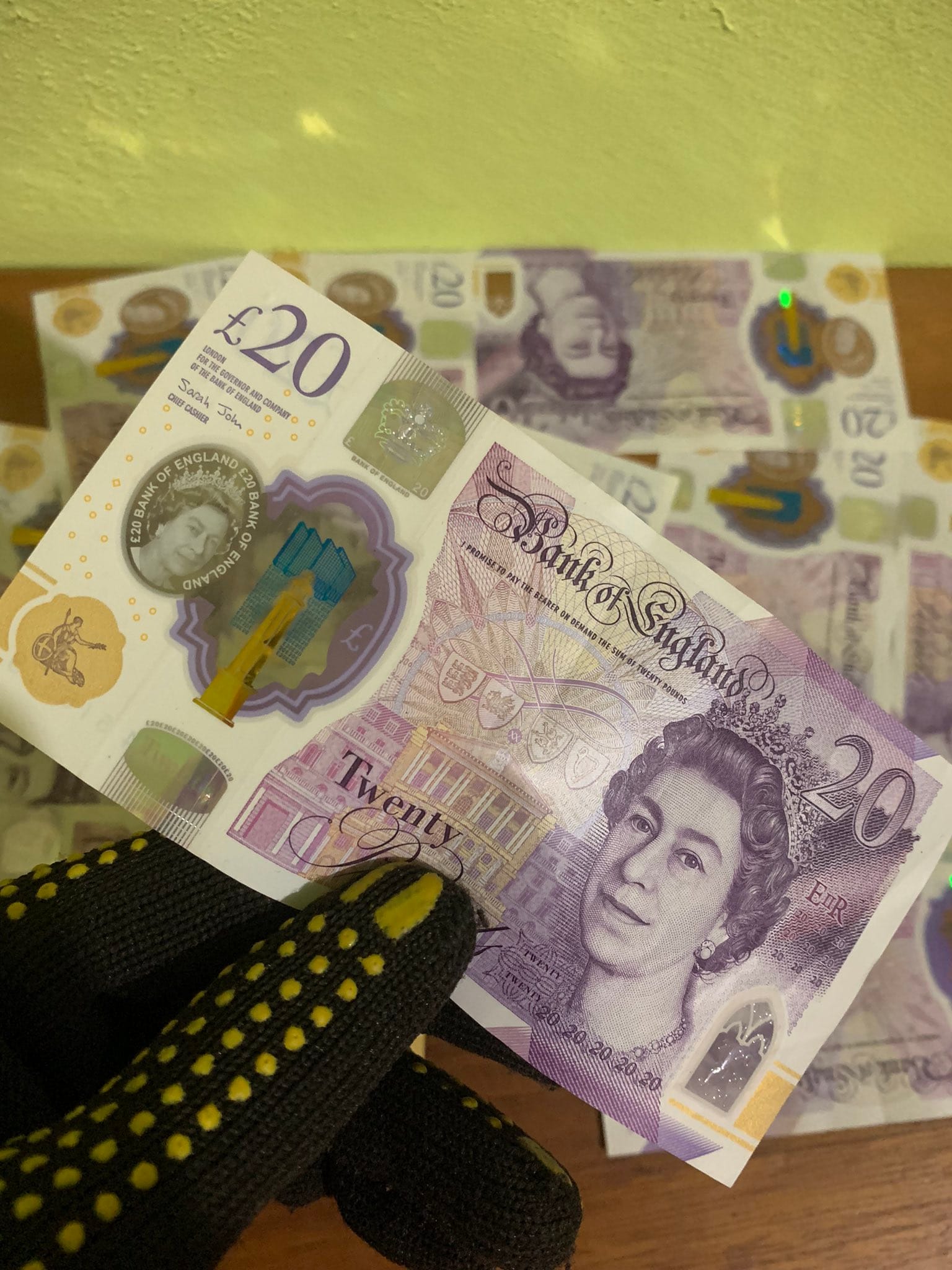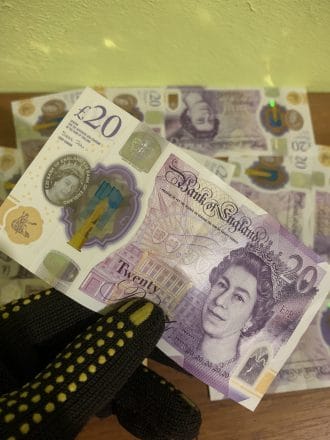the Twenty-pound polymer note features


Britain to Retire £14.5 Billion in Paper Banknotes as It Moves to Polymer Currency
June 24, 2022, at 4:09 a.m. EDT
The Bank of England will withdraw £14.5 billion (nearly $18 billion) worth of paper banknotes from circulation by September 30, completing the country’s full transition to polymer currency. With this step, the United Kingdom becomes the largest economy in the world to rely solely on plastic-like banknotes.
To ensure a smooth transition, the Bank is urging people to spend or deposit their old paper £20 and £50 notes before the deadline. After September 30, stores will no longer accept these notes. However, banks and the U.K. Post Office may continue accepting them beyond that date. This change reflects the U.K.’s broader shift toward digital payments—a trend that the COVID-19 pandemic significantly accelerated.
Polymer notes made from a flexible, plastic-like material offer several advantages. The Bank of England explains that they last longer, remain cleaner, resist water, and are much harder to counterfeit due to their complex production process.
“Changing our banknotes from paper to polymer over recent years has been an important development,” said Sarah John, the bank’s chief cashier. “It makes them more difficult to counterfeit and means they are more durable.”
A Brief History of Polymer Banknotes
Australia became the first country to adopt polymer notes in 1992. By contrast, the United States still prints its dollars on a blend of cotton and linen, embedding red and blue fibers to help deter forgery.
All U.K. polymer notes feature a portrait of Queen Elizabeth II on one side. Meanwhile, the reverse sides honor influential British figures:
£5 note: Winston Churchill, WWII-era prime minister (introduced in September 2016)
£10 note: Jane Austen, novelist
£20 note: J.M.W. Turner, 19th-century artist
£50 note: Alan Turing, pioneer of computer science and WWII codebreaker, whose life inspired The Imitation Game
The paper notes being replaced feature historical figures such as Adam Smith, the Scottish economist, and Matthew Boulton and James Watt, innovators of the Industrial Revolution.
Controversy Over Materials
Despite its benefits, the introduction of polymer notes sparked controversy. Animal rights and religious groups objected to the use of tallow—a fat derived from animals—used in small quantities to help the notes move smoothly through machines. Although alternatives exist, the Bank of England ultimately chose not to switch, citing the high cost of reformulating the polymer base.




